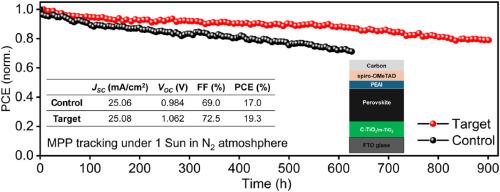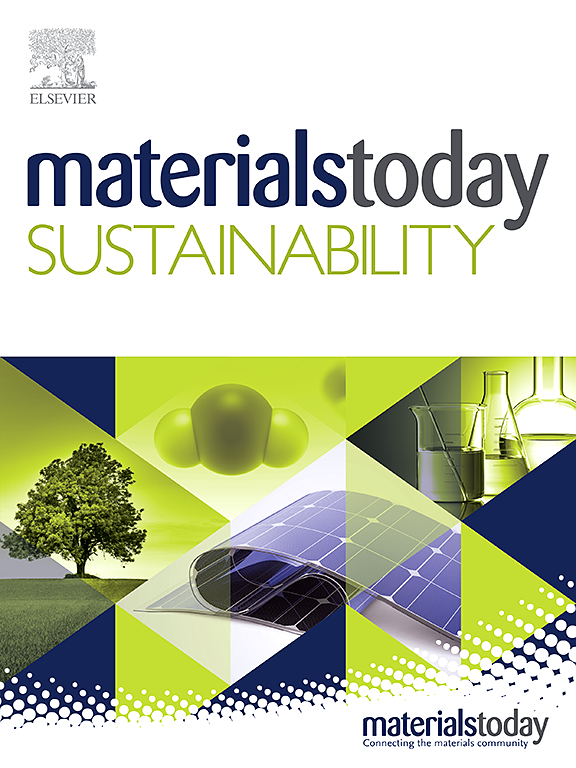通过碳基过氧化物太阳能电池的表面钝化提高效率
IF 7.1
3区 材料科学
Q1 GREEN & SUSTAINABLE SCIENCE & TECHNOLOGY
引用次数: 0
摘要
过氧化物太阳能电池(PSC)在功率转换效率(PCE)方面取得了长足进步,但其商业化仍受到稳定性问题的限制。此外,金等电极成本高昂,因此有必要探索碳(石墨烯)等更经济实惠的替代品。在本研究中,我们提出了一种结合材料尺寸控制和界面钝化的方法,即使用有机卤化物盐苯乙基碘化铵(PEAI)进行器件后处理,以提高碳基 PSC 的效率。有效的缺陷钝化是进一步提高 PSC 的 PCE 和开路电压 (VOC) 的关键。我们的研究结果表明,PEAI 成功地钝化了过氧化物表面的缺陷,大大减少了非辐射重组。因此,我们实现了效率高达 19.3% 的碳基 PSCs,并在最大功率点跟踪 (MPPT) 下显示出超过 900 小时的出色稳定性。本文章由计算机程序翻译,如有差异,请以英文原文为准。

Enhancing efficiency through surface passivation of carbon-based perovskite solar cells
Perovskite solar cells (PSCs) have made significant strides in power conversion efficiency (PCE), but their commercialization remains limited by stability issues. Additionally, the high cost of electrodes like gold necessitates the exploration of more affordable alternatives such as carbon (graphene). In this study, we present an approach that combines material dimensionality control and interfacial passivation using post-device treatment with phenethylammonium iodide (PEAI), an organic halide salt, to enhance the efficiency of carbon-based PSCs. Effective defect passivation is key to further improving the PCE and open-circuit voltage (VOC) of PSCs. Our results show that PEAI successfully passivates defects on the perovskite surface, significantly reducing non-radiative recombination. As a result, we achieved carbon-based PSCs with an impressive efficiency of 19.3%, demonstrating excellent stability under maximum power point tracking (MPPT) for over 900 h.
求助全文
通过发布文献求助,成功后即可免费获取论文全文。
去求助
来源期刊

Materials Today Sustainability
Multiple-
CiteScore
5.80
自引率
6.40%
发文量
174
审稿时长
32 days
期刊介绍:
Materials Today Sustainability is a multi-disciplinary journal covering all aspects of sustainability through materials science.
With a rapidly increasing population with growing demands, materials science has emerged as a critical discipline toward protecting of the environment and ensuring the long term survival of future generations.
 求助内容:
求助内容: 应助结果提醒方式:
应助结果提醒方式:


